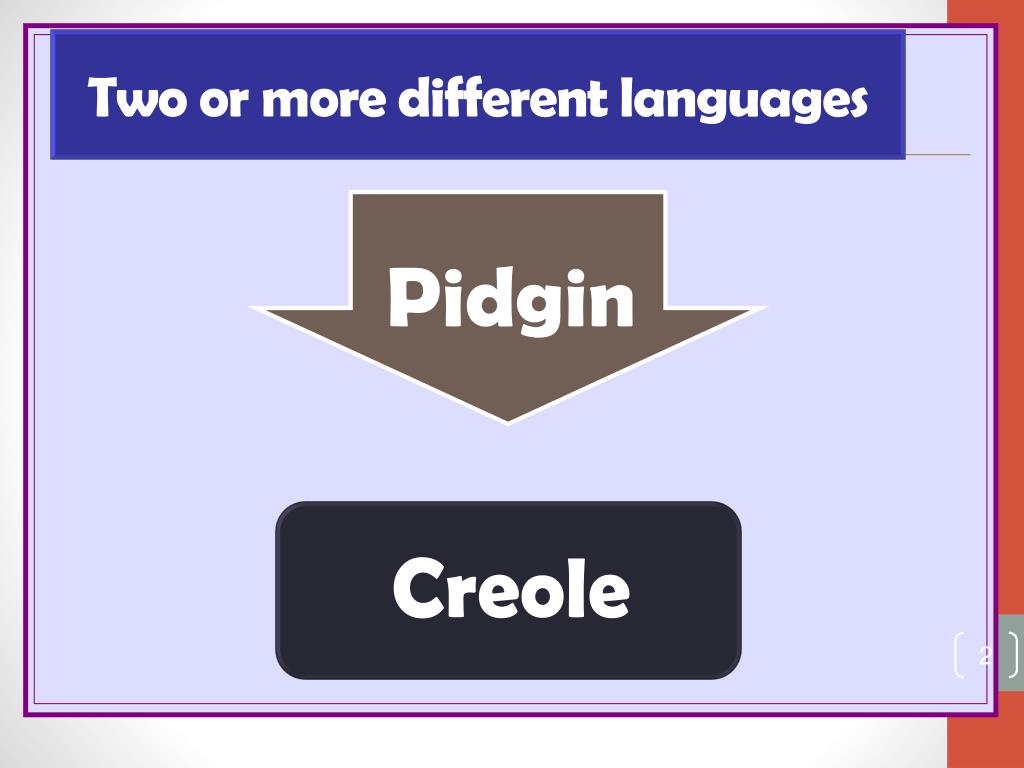

Old colonial types stress the second 'a' ("Bislamaah" or "Bishlemaah"), younger expatriates stress the first 'a' ("Bislaahma"), and locals don't stress either syllable ("Bislahmah"). The pronunciation of the word "Bislama" varies. Bislama hybridises freely with its parent language, and you will hear many sentences that are half-English and half-Bislama spoken not just by expatriates but also by educated natives. The pronunciation of Bislama is often strongly tainted by that of the speaker's native language (especially among English-speaking foreigners like me), and many of the 'rules' of the language are frequently bent or broken. Partly because Bislama is seldom a person's native language, and partly because it is not formally taught in schools, there is considerable variation in how the language is used. People in rural Vanuatu grow up speaking native languages and only later learn Bislama, although for some urban children it is a first language. When Vanuatu became independent in 1980, Bislama was declared its 'national language', although English and French continue to be used for many official purposes, and Bislama is actually banned in many schools.įor most people, Bislama remains a second language. Returning labourers took Bislama back to Vanuatu, where it evolved from a simplified pidgin into a fully-fledged language, and was used wherever people with different native tongues need to communicate. The new form of speech was known as "Bislama" from the French bêche-de-mer, meaning "sea cucumber", which was an important export from the South Pacific at that time. This was based partly on the 'South Sea jargon' used by early sailors.

There, islanders who spoke different native languages needed a way to communicate with one another and with their English-speaking masters, and a simple pidgin language developed as a result. In the late 19th-century, labourers from Vanuatu and other parts of Melanesia were taken to work on sugar cane plantations in Queensland and Fiji. Colonialism exacerbated the islanders' difficulty in understanding one another, since Vanuatu was ruled jointly by the UK and France, and was given a dual education system - which persists to this day - in which some schoolchildren are educated in English and others in French. In Vanuatu, over a hundred distinct languages are spoken in a country with a population no greater than that of a large English town - virtually every group of villages has its own language. Their vocabulary of these languages is based on English, but in their sounds and grammar they incorporate many features of native Melanesian languages. Bislama, the form of pidgin English dealt with in this guide, is the national language of Vanuatu in the South Pacific, and related forms of pidgin are spoken in the neighbouring countries of Papua New Guinea and the Solomon Islands. Pidgin English is regarded by many as a bit of a joke, but it is in fact the main language of three countries. Some of these pidgins later evolved into sophisticated, fully-developed languages (these are technically known as 'creoles', although the term 'pidgin' has persisted). Pidgins are highly simplified forms of a language that originally arose where people with no common language came into contact with one another and were forced to communicate.

#Learn pidgin english language how to#
How to speak Bislama (Vanuatu Pidgin English) What is pidgin English? Pidginise Your English - Learn Bislama, Vanuatu's national language


 0 kommentar(er)
0 kommentar(er)
